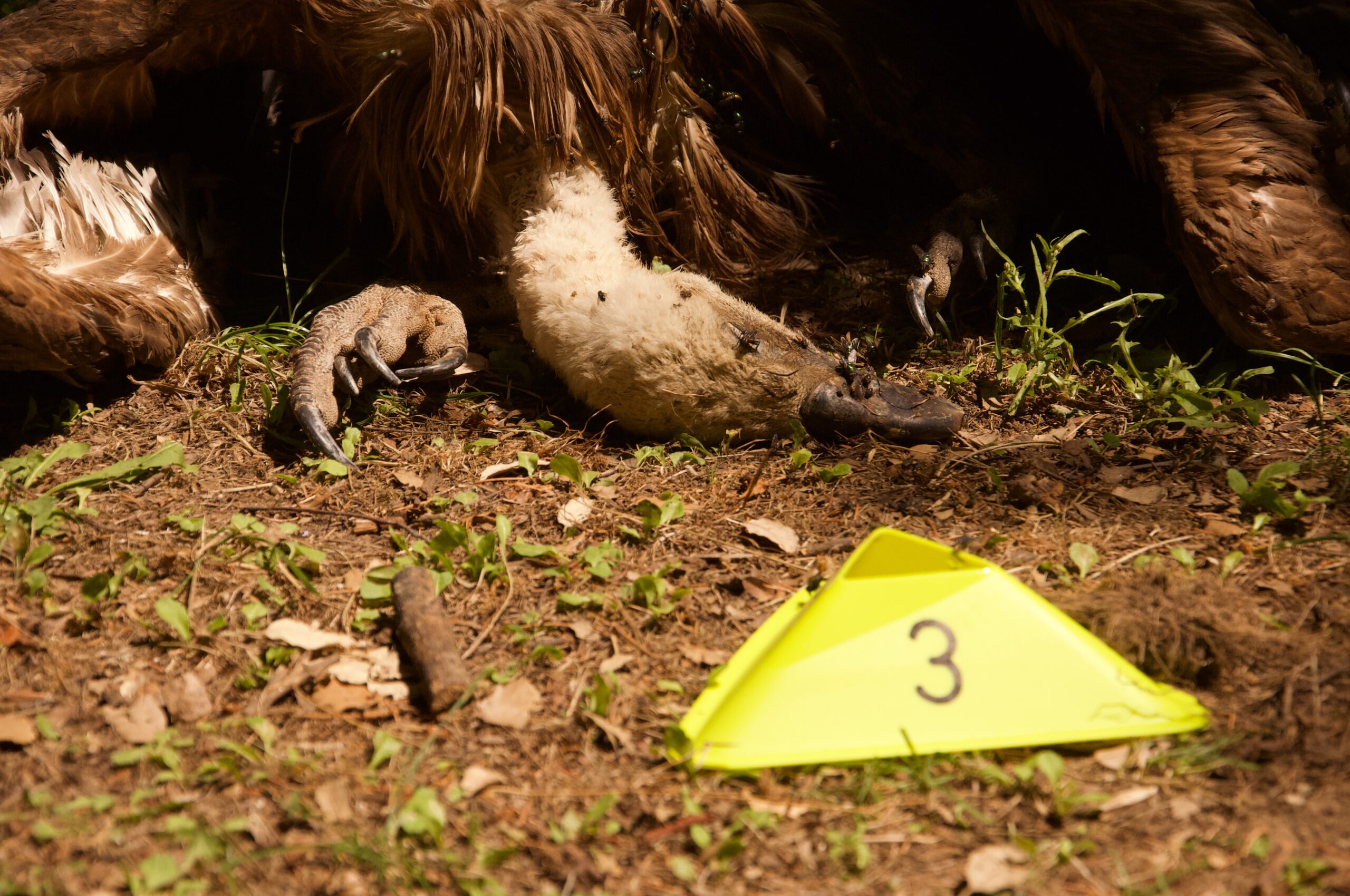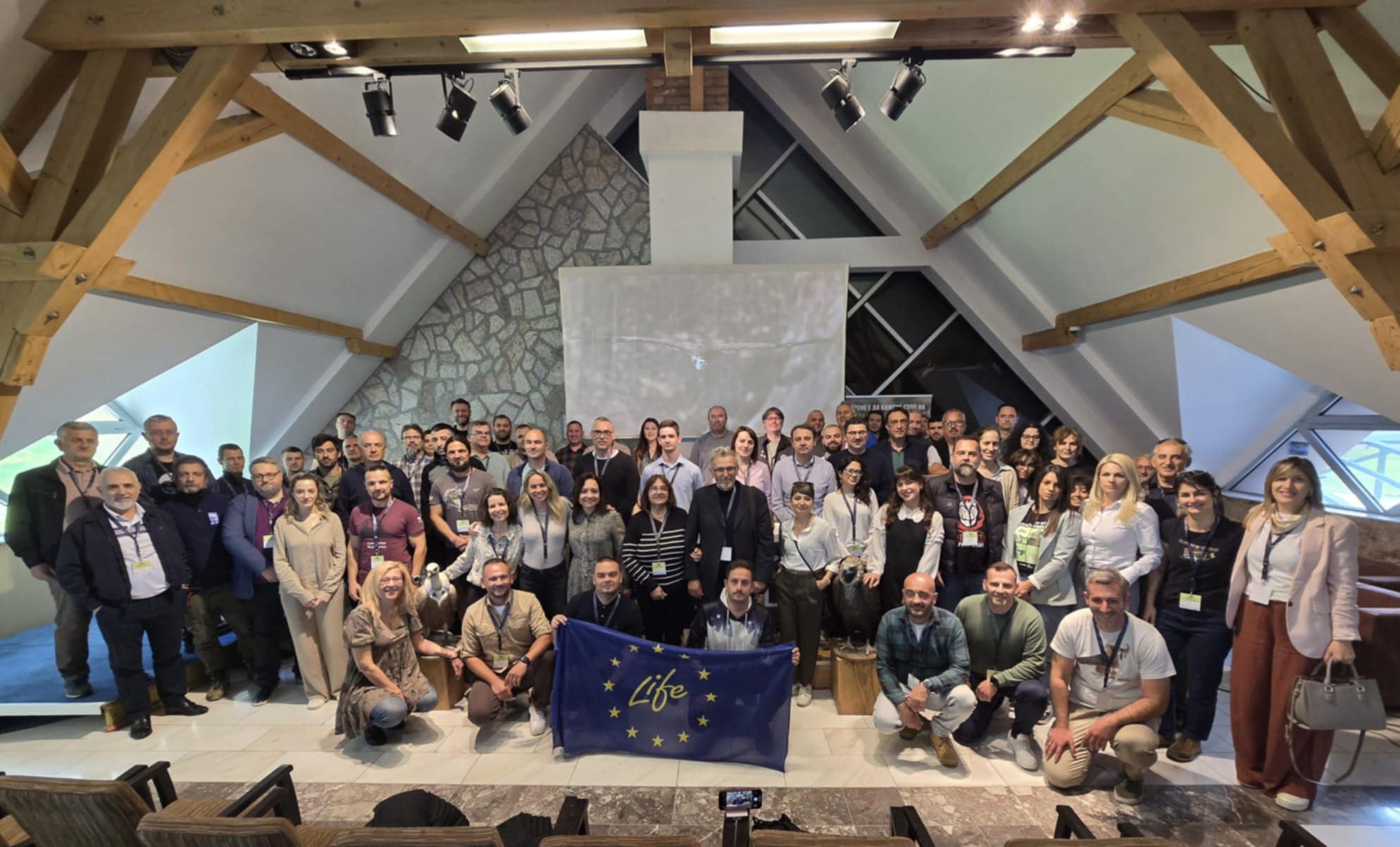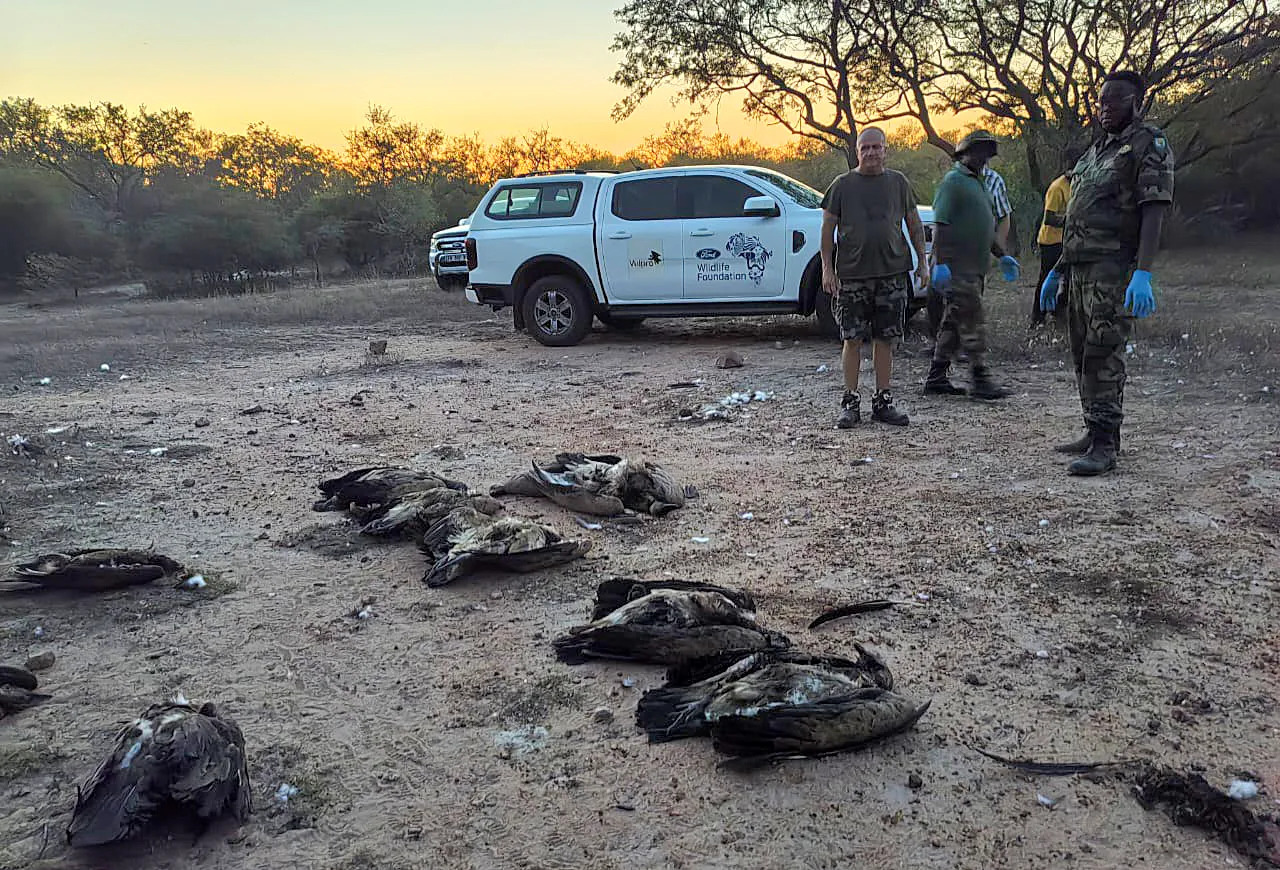
Organised by the Bird Protection and Study Society in Serbia/BirdLife Serbia (BPSSS), staff from the Vulture Conservation Foundation attended a meeting that brought together a variety of important stakeholders together to tackle illegal wildlife poisoning in Serbia.
Stop Poisoning of Birds of Prey – Safe Environment for Birds and People
Financed by Serbia’s Ministry of Environment, Stop Poisoning of Birds of Prey – Safe Environment for Birds and People, aims to tackle the illegal wildlife poisoning. On Tuesday 22 October the project brought together representatives and stakeholders from the Ministry of Environment, Environmental Inspectorate, both the Republic and Provincial Institute for Nature Conservation, as well as representatives from the NGO sector including us and the Fund for Protection of Birds of Prey to analyse the most important obstacles and challenges that the nature conservation community in Serbia is currently facing when it comes to the illegal use of poison.

We here at the Vulture Conservation Foundation attended and used this opportunity to present the issue of wildlife poisoning in a global and European perspective and our best practice experience in combating this threat. Special attention was also given to the activities and achievement of the Balkan Anti-poisoning Project (BAPP) that we are currently conducting in the region.
Anti-poisoning efforts in Serbia
It is important to note that significant conservation efforts in Serbia related to wildlife poisoning have already been made in the past by our hosts – BPSSS but also by the Institute for Nature Conservation of Serbia and Fund for Protection of Birds of Prey. Poisoning incidents are well documented in the country, drivers and stakeholders clearly identified, as well as most commonly used toxic substances for wildlife poisoning. BPSSS has established a Bird Crime Task Force for several years which works actively at detecting and reporting all incidents associated to illegal killing and harming of wild birds, both to the relevant authorities and general public. This information has been made publicly available in the recently published Report on illegal shooting, poisoning, trapping, possessing and trade of wild birds in the Republic of Serbia for the period 2000-2017.
Report on illegal shooting, poisoning, trapping, possessing and trade of wild birds in the Republic of Serbia for the period 2000-2017. Serbia-bird-crime-report.pdf Adobe Acrobat Document 3.2 MB Download
Our colleagues from Serbia have also developed a mortality database for all birds, as well as a separate database that keeps track of all poisoning incidents in the country, which a crucial tool for understanding the scope and severity of this conservation issue. During the course of the meeting we were made aware that wildlife poisoning is still a huge conservation issue in Serbia and have managed to identify the most important gaps that will need to be addressed in order to improve the situation with the illegal use of poison in the environment in the country.
Future direction
Serbia has good legislation in place when it comes to wildlife poisoning. However, insufficient capacities in both personnel and expertise exist within relevant authorities and enforcement agencies. It is especially important to engage and cooperate more actively with the police. Also, more efficient and clear protocols describing responsibilities in reporting, investigating and prosecuting cases of wildlife poisoning need to be developed and distributed within all responsible institutions to precisely define competences of each agency within national legislation, and avoid overlaps. Additionally, some efforts have to be made in order to improve communication and facilitate information change between institutions. One of the most important things in legal proceedings of poisoning incidents is the conduction of thorough toxicological analyses and significant efforts towards capacity building need to be made within responsible governmental institutions. With this positive initiative and very concrete feedback that we’ve received from the meeting, we strongly believe that much better days are coming for all birds in Serbia.
Illegal poisoning
Poisoning has been recognised as the single most important threat that vulture populations are facing worldwide within the Vulture MsAP, a crucial strategic document for conservation of Old World vultures, approved by the Convention for Migratory Species (CMS) last year. The BAPP, a vital component of the Mediterranean Anti-Poisoning Project (MAPP), funded by the Mava Foundation and spearheaded by VCF, directly contributes to implementation of the MsAP in the region.
The Balkan Anti-Poison Project

The Balkan Anti-Poison Project is an integral part of the Mediterranean Anti-poison project funded by the Mava Foundation and coordinated by VCF, and aims to to develop national anti-poison road maps in five countries (Greece, Macedonia, Albania, Bosnia & Herzegovina & Croatia). As Serbia is not eligible for Mava financing, it is not officially included in the BAPP project. However, we believe that we should do our best to secure additional funds and to support the impressive work of our colleagues in Serbia in the years to come, especially since Serbia hosts the largest breeding population of Griffon Vultures in the Balkans, which has a positive population trend, and is a key country for the successful recuperation of this and other vulture species in the region.




